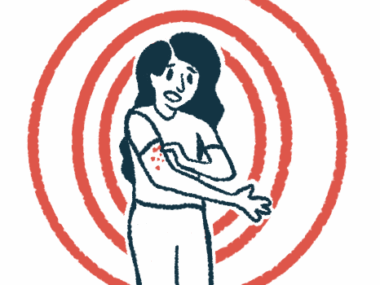European Medicines Agency Grants Orphan Drug Status to QR-313 for Dystrophic EB
Written by |

Orphan Drug Designation was recently granted to ProQR Therapeutics’ investigational therapy QR-313 for the treatment of dystrophic epidermolysis bullosa (DEB) by the European Medicines Agency (EMA).
Orphan Drug Designation (ODD) in Europe is granted to drug candidates intended for the treatment, prevention or diagnosis of diseases that are life-threatening or chronically debilitating, and when there are no more than five patients with the disease per 10,000 people.
Investigational drugs are also eligible for ODD when the marketing of the medicine would not likely generate a profit. Another condition for granting ODD is that there exists no satisfactory method of diagnosis, prevention, or treatment of the condition, or, if a method does exist, the new drug will be of significant benefit to those affected.
A number of incentives for drug companies to encourage the development of orphan drugs are provided in the EU.
The U.S. Food and Drug Administration granted orphan drug status to QR-313 in September for the treatment of DEB. The first clinical trial of QR-313 is expected in 2018, with interim data anticipated in the same year.
DEB is a rare genetic disease involving severe blistering of the skin, leading to the need for frequent treatment and poor quality of life for patients. It is a major type of epidermolysis bullosa.
QR-313 is a first-in-class RNA-based oligonucleotide designed to correct the genetic defects that are the most common underlying causes of DEB — mutations in exon 73 of the COL7A1 gene.
Defects in exon 73 (a smaller unit of DNA in the gene) results in defective collagen type VII (C7) protein. The C7 protein is normally part of the fibrils that link the epidermis (or top layer of skin) to the layer beneath, the dermal layer (dermis). DEB results when the C7 protein is defective and the epidermis and the dermis are not linked properly.
QR-313 is designed to help produce a normal C7 protein and restore a proper bond between the two layers of skin. Treatment with the drug should result in better wound healing and prevent blistering. QR-313 is a water-based gel (hydrogel) that is applied directly onto DEB wounds.
“We are pleased to have orphan drug designation for our QR-313 program targeting dystrophic epidermolysis bullosa in both the U.S. and Europe,” Dr. David M. Rodman, MD, chief development strategy officer of ProQR, said in a press release.
“This represents another milestone for our company and highlights the unmet need for patients with this devastating disease. Our goal is to develop and actively advance a pipeline of programs that can treat DEB mutations in a targeted manner,” Rodman said.





